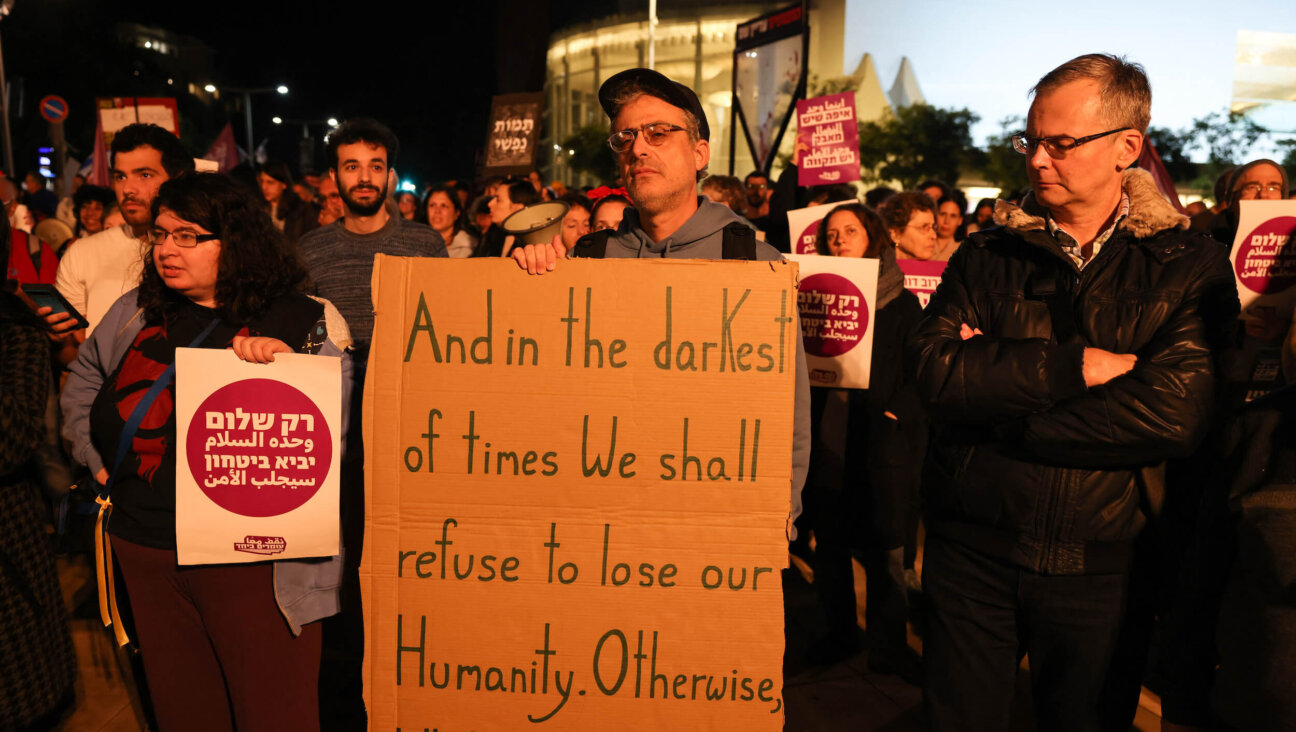80% Of Reform Rabbis Are Democrats — Even Orthodox Lean To Liberal Side Of Aisle

Graphic by Angelie Zaslavsky
(JTA) — The vast majority of Reform and Conservative rabbis affiliate as Democrats, according to a new study.
The study, published Sunday by Yale University, found that more than 80 percent of Reform rabbis, and about 70 percent of Conservative rabbis, affiliate as Democrats. Both were among the top five most Democratic clergy of the United States’ Jewish and Christian denominations, with Reform rabbis topping the list.
Orthodox rabbis are split, with nearly 40 percent identifying as Democrats and a quarter as Republicans.
By contrast, Evangelical pastors are almost all Republicans, as are most Baptists. The Black Protestant African Methodist Episcopal clergy, as well as Unitarians, are heavily Democratic. Catholic priests are evenly split between Republicans and Democrats.
The study’s findings reflect existing data on the politics of American Jews. Solid majorities of American Jews consistently vote for Democrats — 70 percent voted for Hillary Clinton — with polls showing that Orthodox Jews are more likely to vote Republican. This year, Reform Jews have been on the front lines of protests against President Donald Trump.
Orthodox Jews make up about 10 percent of the American Jewish population, various studies show. One-third, or 35 percent, of all U.S. Jews identify with the Reform movement, 18 percent identify with Conservative Judaism, 6 percent with other movements and 30 percent with no denomination, according to the Pew Research Center.
The Yale study also shows that rabbis’ political views track with congregants’ views on policy. For example, 40 percent of Orthodox rabbis are Democrats, and some 40 percent of Orthodox congregants are pro-choice, while about 30 percent of congregants believe gays and lesbians should be legally allowed to marry. Likewise, large majorities of Conservative and Reform rabbis are Democrats, and large majorities of their congregants are pro-choice and pro-gay marriage.
Rabbi Rick Jacobs, president of the Union for Reform Judaism, told JTA earlier this year that Reform rabbis’ generally liberal politics are a reflection of their Jewish values.
“The idea of Jewish spiritual community being about feeding the hungry, clothing the homeless, caring for the stranger — these are fundamental core pieces,” Jacobs said in January. “If we don’t talk about those things in our religious communities, we’re irrelevant.”
Orthodox Jews also cite Jewish values in explaining their support for Republicans, noting a preference for the GOP on Israel and conservative support for school choice programs and religious exemptions for various government mandates.
In total, the data cover 186,000 clergy, including roughly 2,700 rabbis. The data were collected via denominational websites cross-referenced with voter registration records. Some denominations and religions — including Mormons and Muslims — are not included due to lack of reliable clergy lists.
The data also show that the Reform rabbinate is the second-most female of any denominational clergy. Forty-five percent of Reform rabbis are women, as opposed to an average of 16 percent across the denominations surveyed. About a quarter of Conservative rabbis are women, and almost all Orthodox clergy are men.
An analysis of the data by the New York Times found that rabbis, on average, lived in the most affluent neighborhoods of any clergy. The median household income of Conservative rabbis’ neighborhoods is nearly $100,000, on average, versus a national median household income of $53,000. The Times article notes that average neighborhood income does not necessarily reflect pastors’ salaries.













